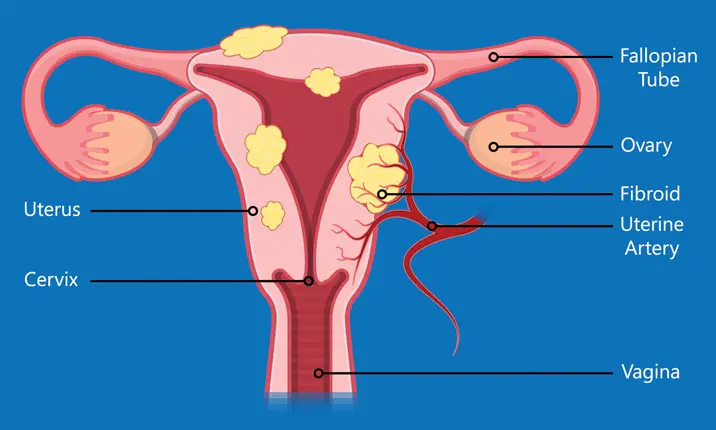If uterine fibroids are causing you distress and you want to get pregnant in the future, talk to your doctor about the possibility of having a myomectomy.
What is a myomectomy?
A myomectomy is a procedure to remove uterine fibroids. If you have been diagnosed with uterine fibroids and are experiencing symptoms including pelvic pain, irregular bleeding, heavy periods or pressure symptoms, and the need to urinate frequently, your doctor may recommend a myomectomy.
Is myomectomy or fibroid removal right for you?
Having a myomectomy will allow your doctor to remove your fibroids while preserving your uterus. Doing so will allow you to retain your ability to get pregnant in the future.
Which type of myomectomy is right for you?
There are 3 main types of myomectomy and your doctor will discuss with you the most suitable of the following types of myomectomy for your condition:
Abdominal myomectomy
This procedure will see your surgeon make a surgical cut to your lower abdomen to get to the fibroids and remove them. Your surgeon may recommend this procedure if you have large fibroids. Full recovery can take up to 4 – 6 weeks.
Laparoscopic myomectomy
This procedure is less invasive. Your surgeon will operate to remove the fibroids using a laparoscopic arm inserted through several small incisions on the abdomen. Because the incisions are small, your pain after the surgery will be less than an abdominal myomectomy. This option may be suitable if you have fewer and smaller fibroids. However, this procedure may work for large fibroids too. Full recovery can take between 3 – 4 weeks.
Hysteroscopic myomectomy
Your surgeon will remove your fibroids through a scope which enters the uterus through your cervix. This surgery may be most suitable if the fibroids are located within the inner lining of the uterus. Recovery takes just a few days.
What are some risks and complications of myomectomy?
Like all surgeries, myomectomy brings with it some risks such as infection and bleeding. While the following complications are rare, any concerns should be discussed with your doctor.
- Risk of reoccurrence. There is a risk of reoccurrence of new fibroids growing after surgery, especially in younger women. The nearer you are to menopause, the less likely you are to have problems from fibroids again.
- Weakening of uterus. The procedure may also weaken the integrity of your uterus, which can cause complications as the uterus could rupture. You may need a caesarean section for your next pregnancy. Let your gynaecologist know that you have had a prior myomectomy so that your pregnancy can be managed safely.
- Excessive blood loss. Many women with uterine fibroids experience heavy menstrual bleeding and therefore have low blood counts. This puts them at a higher risk of surgical complications due to blood loss. There are a few ways that you can build up your blood count before surgery. Speak to your doctor to find out how.
- Scar tissue. The incisions made on the uterus to remove the fibroids can develop into bands of scar tissue called adhesions. Laparoscopic myomectomy may result in fewer adhesions when compared to conventional, abdominal myomectomy.
- Pregnancy or childbirth complications. A myomectomy can increase certain risks during delivery if you become pregnant in the future. If a deep incision in your uterine wall had to be made, your doctor may recommend a caesarean delivery for your subsequent pregnancy to avoid uterine rupture during labour.
- Rare chance of hysterectomy. There may be rare instances where the uterus must be removed by your surgeon to stop excessive and uncontrollable bleeding, or if other complications are found in addition to fibroids.
- Rare chance of spreading a cancerous tumour. Sometimes a cancerous tumour may be mistaken for a fibroid. In such cases, another surgery is required after the initial operation to clear the cancerous cells.
How to prevent surgical complications
Vitamins and iron supplements
Your doctor might recommend iron supplements and vitamins to allow you to build up your blood count before surgery if you have iron deficiency anaemia from heavy menstrual periods.
Hormonal treatment
This strategy may also be useful to correct anaemia before surgery. Your doctor may prescribe a gonadotropin-releasing hormone (GnRH) agonist, birth control pills or other hormonal medication to stop or decrease your menstrual flow.
Therapy to shrink fibroids
The use of hormonal therapies, such as GnRH agonist therapy can help to temporarily shrink your fibroids and uterus. This then allows your surgeon to use a minimally invasive surgical approach to remove the fibroids instead of an open surgery. Although GnRH agonist therapy can improve fibroid symptoms, it can also cause unpleasant menopausal symptoms, such as hot flushes, night sweats and vaginal dryness. These symptoms, however, will resolve after the medication is stopped. Talk to your doctor to determine if this is the right option for you.
Is pregnancy after fibroid removal possible?
The likelihood of pregnancy depends on the type and number of fibroids you have.
In women who do get pregnant after a myomectomy, your doctor will likely recommend a caesarean delivery to be scheduled before your estimated due date (EDD) to minimise the risk of a tear of the uterus as the pregnancy progresses or during childbirth.
Results after myomectomy
Most women experience relief from symptoms such as pelvic pain and heavy menstrual bleeding after a myomectomy.
Women who underwent a laparoscopic myomectomy can expect improved fertility and good pregnancy outcomes within a year of surgery.
However, fibroids can also come back after a myomectomy, especially in younger women and those with multiple fibroids. Women with new or recurring fibroids may opt for a hysterectomy (removal of the uterus) as a last resort.
How can you prepare for a myomectomy?
- You will need to tell your surgeon what medications you are already taking, including supplements and vitamins. Your surgeon may advise you to stop taking them for a length of time before and after surgery.
- Do not eat or drink anything 6 hours prior to surgery.
- Sometimes your doctor may prescribe medicine to clear your bowels prior to the myomectomy.
If you have uterine fibroids, consult a gynaecologist and discuss the options available and together you'll be able to make a decision that is most suited for you.














